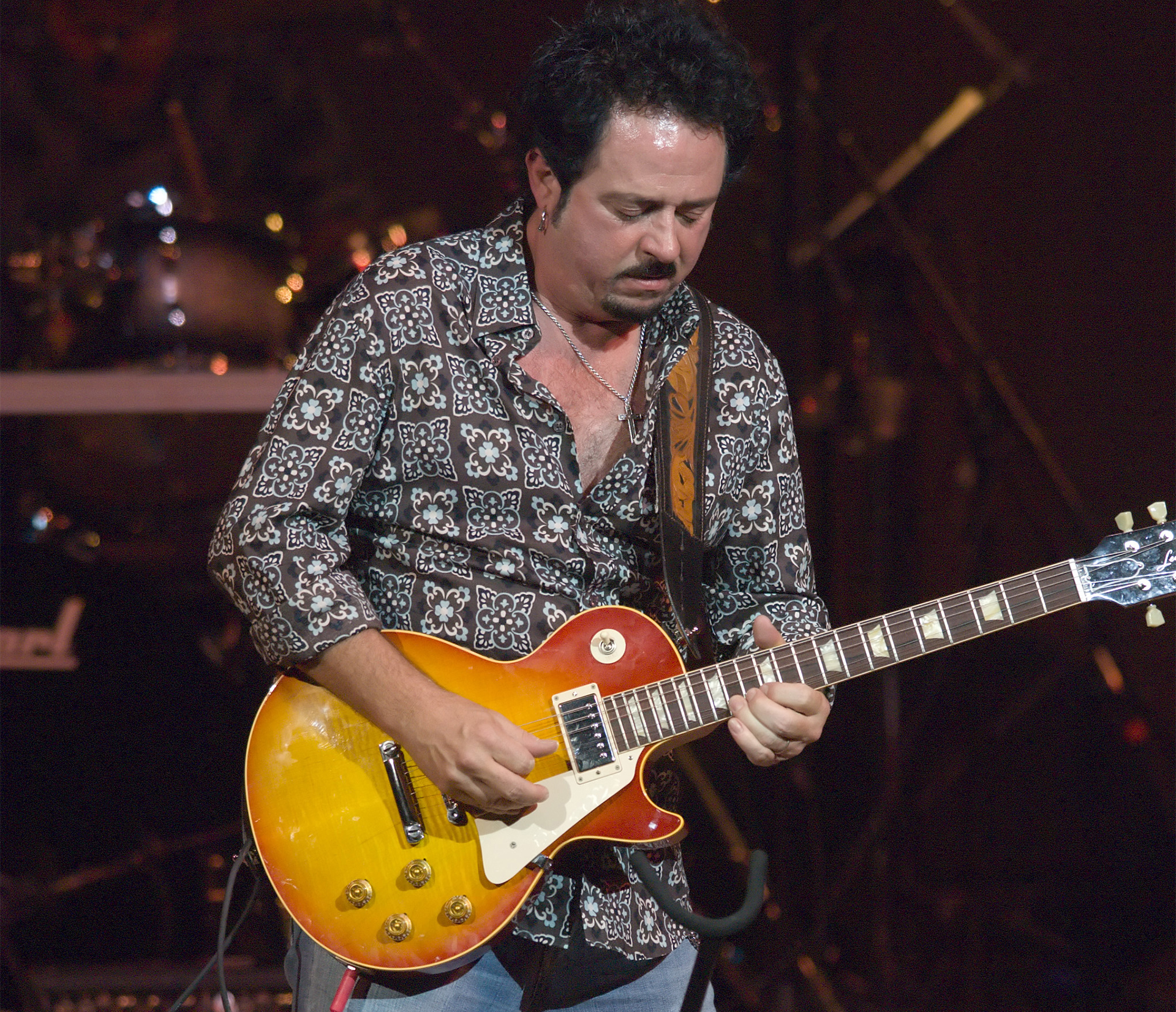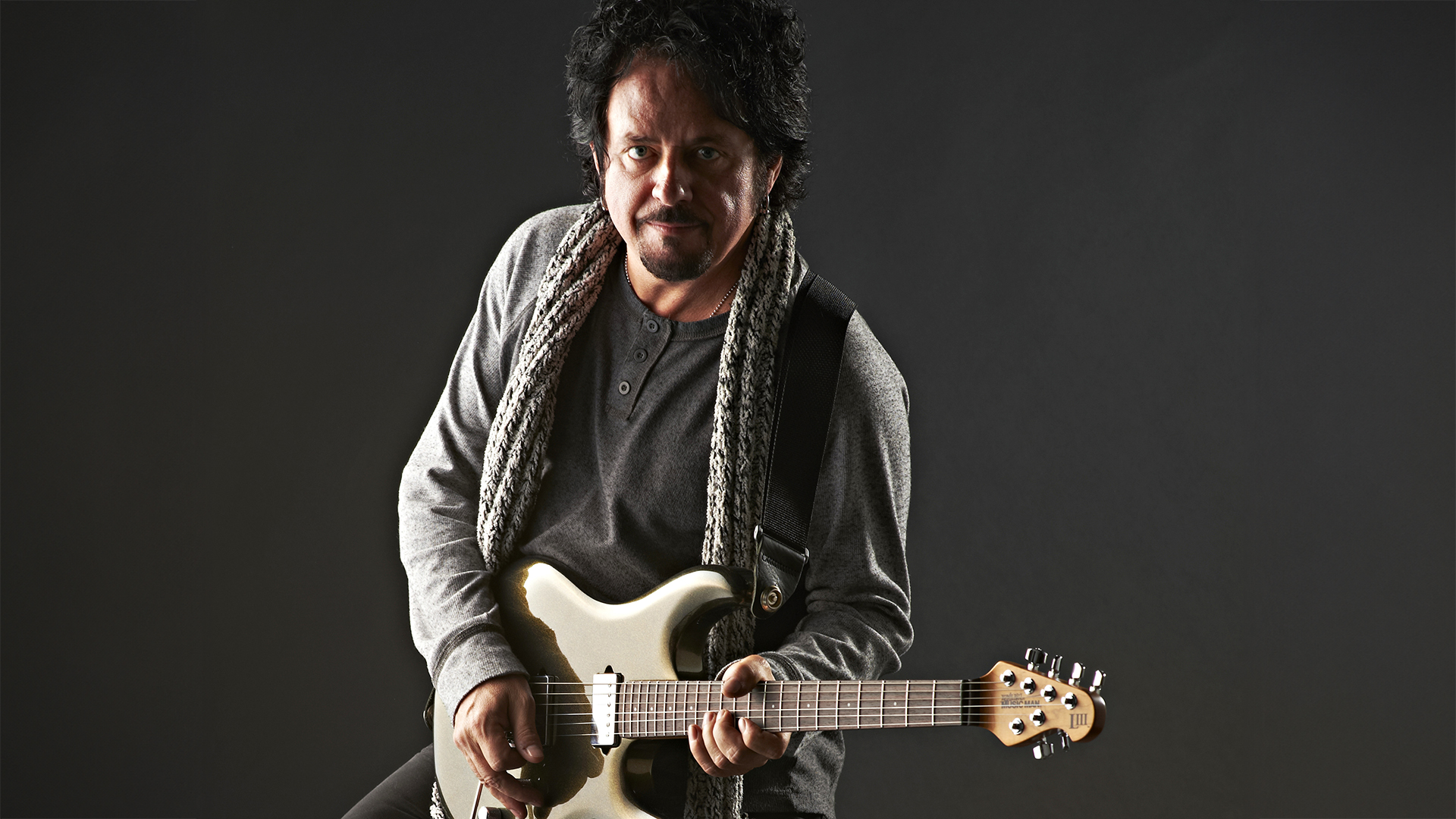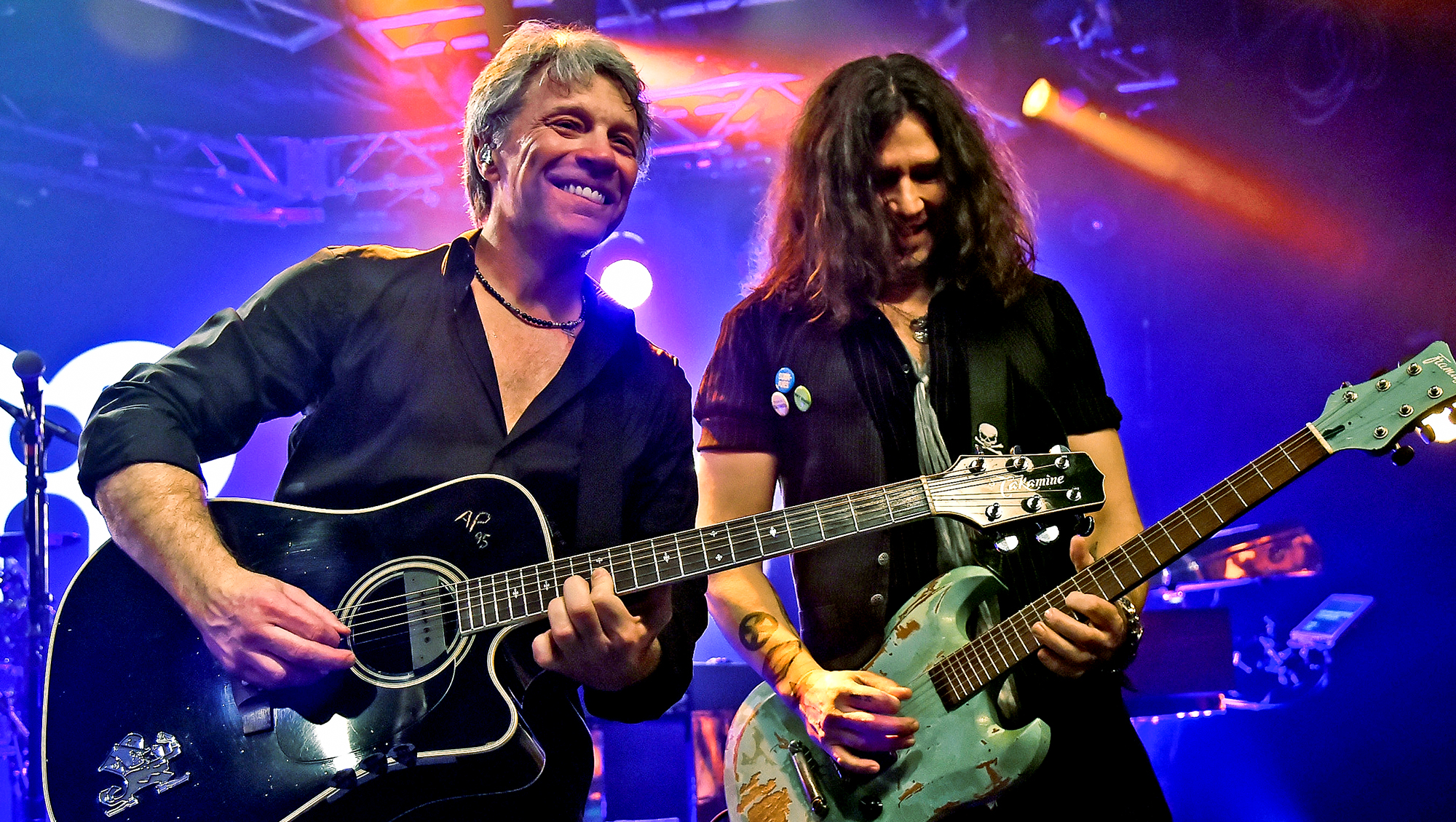"It was just appraised for… let's just say a whole lot of money. I don't want to take this thing around!” Steve Lukather reveals the best electric guitar he owns and the one he’ll never play
The Toto guitarist also talked to us about his biggest guitar regret and the pedal that’s always on his board

You've heard his soaring solos on classic cuts like Toto's "Hold the Line" and feasted on his immense songwriting and rhythm cops on titanic tracks like "Africa." But beyond the licks, like most of us, Steve Lukather is one hell of a gearhound.
Sure, he loves his signature Music Man axe's but make no mistake — Luke has a killer collection of vintage guitars, such as a particular late-‘50s Les Paul Standard that you'd have to pry out of his cold, clammy fingers once he's six-feet under.
Elsewhere, Luke has his regrets, which also happen to be Gibson-related. More on that below.
But all in all, though his gear is mighty, and his skill as slick as it comes, it's Luke's personality and warm sense of humor that shined most when he dialed in with GP to talk guitars and pedals.
What's the one piece of gear that you can't live without, and why?
You have to remember I've been playing Music Man for over 30 years now. They've developed from the earlier, simple ones to be more high-end sophistication. I'm loving my Luke 4s, man.
These are the guitars that I really play and really love, particularly the wood. They're consistently great guitars and they work for me.
All the latest guitar news, interviews, lessons, reviews, deals and more, direct to your inbox!
Is there a vintage guitar that you can't live without?
Of course. My 1959 Gibson Les Paul sunburst. It’s the holy grail, baby. It has a huge history of hit records. George Harrison played it, and it's just got a lot of history. I love that guitar. I found it through a drum tech friend, who said, "Man, Luke, you need to get one of these before they're out of control expensive."
That was in 1979. I picked one up for four grand in a music store in Arizona, and it was just appraised for… let's just say, a whole fucking lot of money. [laughs] I just retired it for a little while after realizing, "I don't want to take this thing around."
Otherwise, I'd be like my bro, Joe Bonamassa, who probably has to hire an armed machine gun staff to stand around his guitar rig. [laughs] But he enjoys and loves those guitars, and I love him for that.


What's the one guitar you'll never play, and why?
The one that I have the least amount of bond with might be a Gretsch. Not because they don't sound great or look cool; it just doesn't feel as comfortable in my hands. I don't know why; maybe it's a little too round of a neck.
I'm not really sure. They're cool guitars; I'm not saying they're not. But you wouldn't see me using one unless it was for something very specific. I've played them before, but I've never owned one.
What's the one guitar you still long for, and why?
One that makes me play really fucking good. [laughs] People will laugh when they read that and go, "Yeah, I can dig that."
I'd wager that any guitar will make a player like you sound good!
Oh, come on, man! I've had a great run. I'm really grateful for my little, teeny piece of acre of the insanity of the music business. I've had a great run, man. I'm grateful and humbled by that. I'm still fooling everybody, so don't tell anybody. [laughs]
What pedal is always on your pedalboard, and why?
When it comes to pedals, I'm a pretty simple guy. But I suppose some kind of delay will always be in the loop, and I will just give it a little throw. I'm not delay crazy like I was in the ’80s. [laughs]
Back when all the new stuff first came, it was like, "Oh, wow, let's turn it all on and see what happens " It was a very excessive decade in every possible way. That's all I can say. Take that any way you want, but when you think about it, you go, “Oh, now it all makes sense" [laughs]
Tell us about your coolest find.
It would have to be the 'Burst. How could it not be the 'burst? That's the most valuable thing I have. Just to have a real one that was legit… I got the “thumbs up” from Joe Bonamassa. [laughs]. So that's got to be the one.
Tell us about the one that got away.
My '58 goldtop Les Paul. I went through a period of purging about 25 years ago, where I thought, "Oh, I haven't played this thing in at least 20 years." And then, I realized its history after I sold it and thought, "Why'd I do that?"
On the other hand, I only paid a couple of grand for it. What I got offered for it was insane. And my daughter, the oldest, was going to college at the time. I said, "Well, this will take care of that," And I was just like, “Well, fuck… I wish I hadn't done that." So, that's the one, for sure.
Andrew Daly is an iced-coffee-addicted, oddball Telecaster-playing, alfredo pasta-loving journalist from Long Island, NY, who, in addition to being a contributing writer for Guitar World, scribes for Rock Candy, Bass Player, Total Guitar, and Classic Rock History. Andrew has interviewed favorites like Ace Frehley, Johnny Marr, Vito Bratta, Bruce Kulick, Joe Perry, Brad Whitford, Rich Robinson, and Paul Stanley, while his all-time favorite (rhythm player), Keith Richards, continues to elude him.
